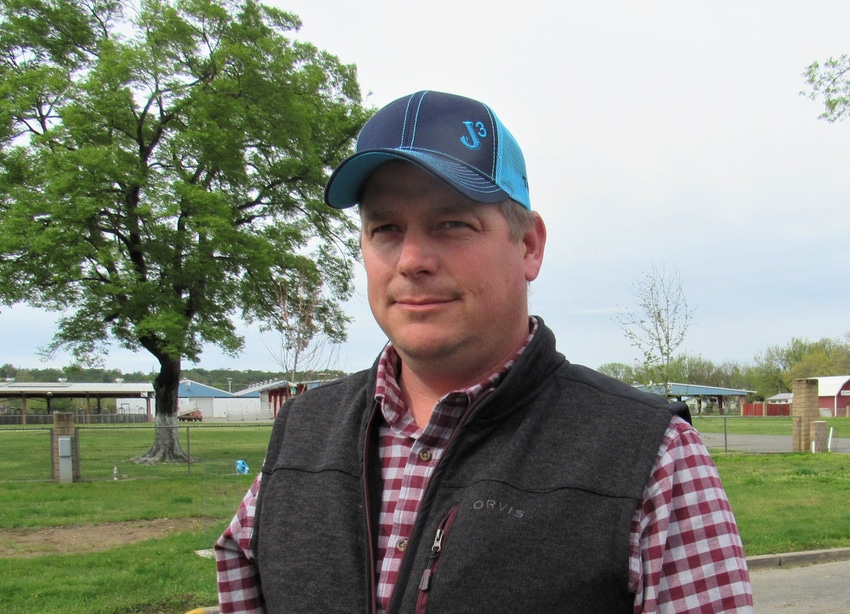
One of the key players in rebuilding the farm program at Shasta College in Redding, Calif., has taken his record of success to the local fair.
B.J. Macfarlane, who was the college’s farm manager since 2010, left in December to manage the Shasta District Fair grounds in nearby Anderson, which has grappled with its own fiscal difficulties.
He says the connections he’s made in the last near-decade have helped in his new mission.
“You need the community involved,” Macfarlane says. “If the community is not involved, there’ll be no support. It’ll be a rough road.”
Macfarlane, who runs beef cattle near Hat Creek, Calif., has spent a lifetime around fairs. His father Bob Macfarlane ran the Inter-Mountain Fair for 14 years before retiring several years ago to focus on the family ranch.
“I’ve been around fairs my whole life showing livestock,” B.J. Macfarlane says. “I started helping run livestock shows in Vallejo, Dixon, Stockton. I’ve been around it my whole life.”
RANCHING BACKGROUND
Having grown up immersed in his family’s cattle operation, Macfarlane earned an animal science degree in 2001 at California State University, Chico, where he was a beef herdsman. He then served as a research assistant focusing on dairy cattle reproduction at Michigan State University before returning to California in 2004.
His enjoyment of working with students during his time in Michigan led him to take the Shasta College farm job a year after the facility nearly closed because of budget constraints.
As the farm was tasked by the administration with generating some of its own revenue, Macfarlane began to run it like a business, producing and selling show-quality goats, pigs and cattle as well as winter wheat and alfalfa. Many youngsters who’ve bought livestock from the college for 4-H and FFA projects end up enrolling in the college later.
With Shasta College’s agriculture program now in the black and expanding, Macfarlane has begun his next reclamation project – revitalizing the local fairgrounds, which is now called the Shasta District Fair and Event Center.
Macfarlane takes over for former chief executive officer Kerby Workman, who assumed the chair from her mother, Chris Workman, a few years ago.
“I call and text them all the time,” Macfarlane says. “I’m very grateful that they’re still involved and helping out.”
FUNDING RESTORED?
California’s network of 79 local fairgrounds has had to go without significant state funding since then-Gov. Jerry Brown zeroed out their $32 million annual allotment in 2011. Around that time, some local residents got together and formed the Friends of the Shasta District Fair, which helps raise money for ground improvements and other needs.
But help for fairs appears to be on the way. The Western Fairs Association expects some funding to be restored in the state budget for fiscal 2020, which begins July 1, according to executive director Sarah Cummings. A funding amount hadn’t been set at press time.
“This is very exciting news for fairs,” Cummings says. “I believe that fair managers and fair staff, their boards and teams have done an excellent job accomplishing what they have over the last few years. I think this is going to strengthen fairs going forward.”
The restored funding comes as fairgrounds in recent years have served crucial roles in disaster-wrought communities, staging firefighters during wildfires and housing animals for flood and fire evacuees.
“Maybe the people in Sacramento who haven’t been aware of that are becoming aware now,” Macfarlane says. “They know now we’re very crucial to make sure firefighters have a base camp with enough area for things they need.”
About the Author(s)
You May Also Like






